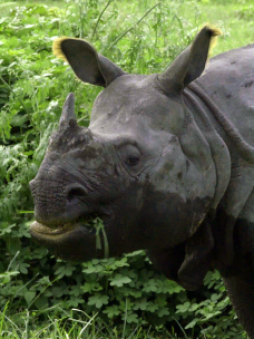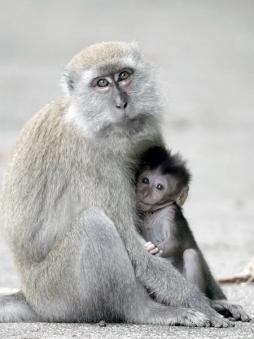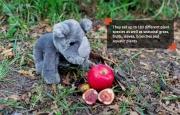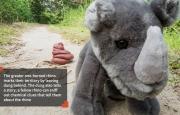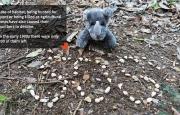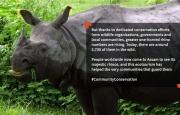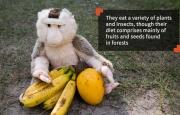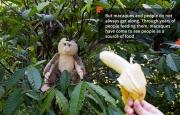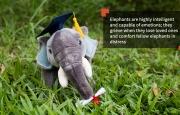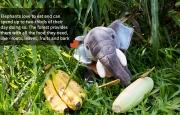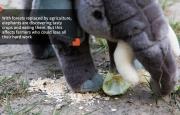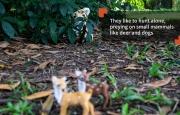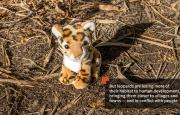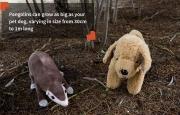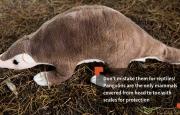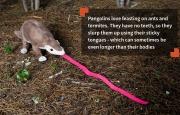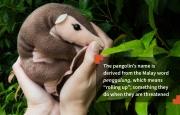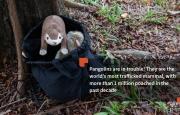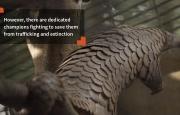 No time to read? Here’s a 30sec read
No time to read? Here’s a 30sec read
An elephant raid can easily destroy a farmer’s months of hard work and their source of income in just a few hours. With elephants and farmers living in such close proximity with each other in Thailand, human-elephant conflicts (HEC) is recurrent and negatively impacts both parties. Bring The Elephant Home (BTEH) has introduced an innovative, sustainable solution to local farmers’ plight by planting crops essential to Thailand’s national dish - Tom Yum Soup. Not only does it act as a natural elephant deterrent due to their strong smell, it brings in additional income to farmers as well, enabling them to live in coexistence with elephants.
An elephant raid can easily destroy a farmer’s months of hard work and their source of income in just a few hours.
Just four hours away from the Thai capital city of Bangkok, the farmers of Ruam Thai village live with the constant fear of elephant raids looming over their heads. They double up as watchmen at night, employing various methods to keep elephants away from their plantations. From creating loud noises through firecrackers and gunshots, to setting up electric fences and poison traps.
Yet these Asian elephants still find a way to get past these barriers, and into the plantations.
“It's like a battle; whoever will be more tired between humans and elephants,” says Samorn Sangthong (Som).
The 36-year-old has spent her whole life in Ruam Thai village, nestled in the hills right next to Kui Buri National Park where wild Asian elephants reside. With elephants and farmers living in such close proximity with each other, human-elephant conflicts (HEC) have been a daily struggle throughout the years.
Fellow Ruam Thai villager Thanasit Biboonwattanakorn (Oh), recounts the impact of elephant raids on his plantation, “In the past, there was a time when my agricultural income was around 40,000 THB (around USD1,300). Now, my income has shrunk by half. I only have 20,000 THB (around USD650).”
Agricultural farming is the main source of income for farmers living in Ruam Thai. Faced with droughts and unforeseeable changing market demands, elephant raids further worsened their financial situation. Months of hard labour could disappear overnight.
Farmers are not the only victims of HEC. Elephants pay a hefty price too, sometimes with their lives. The number of elephant deaths and injury cases across Thailand rose from 27 cases in 2014 to 88 cases in 2018.
“They are living creatures on this planet, so they have the right to live on this earth without anyone harming them,” says Som.
“Everything is evolving. Humans are evolving, elephants are evolving. But the location is still the same size. We need to adjust our way of thinking. We need to adapt and learn to live with elephants.”
Bring The Elephant Home
Searching for tangible and humane solutions, both Som and Oh joined Bring The Elephant Home (BTEH) as an activity coordinator and field staff respectively.
Bring The Elephant Home is an international non-profit organisation in Thailand advocating for peaceful, innovative, and community-based solutions that allows for coexistence between humans and elephants.
“When the locals benefit, the elephants benefit, and the broader nature benefits as well,” shares project manager David Owen, highlighting the organisation’s philosophy of finding a win-win solution to this conflict.
BTEH has utilised innovative solutions in other districts around Thailand, by creating beehive fences around plantations. These work as a successful natural deterrent as elephants are afraid of bees. This approach doesn’t just keep crops safe, it also provides farmers with an additional source of income as they could harvest the honey.
This solution however, wouldn’t work for the farmers of Ruam Thai as most of their crops are pineapples which are grown with the use of herbicides. These herbicides are fatal to bees.
So BTEH worked with the local community to find a long-term solution that would work for them, while protecting both farmers and elephants.
Tom Yum Project
In late 2020, the Tom Yum Project came to life, an initiative that seeks to help farmers transition from planting crops that are desired by elephants, to crops that are natural elephant deterrents, such as lemongrass, chili, turmeric, bergamot, galangal and citronella.
Coincidentally, these crops are also essential ingredients in the Thai national dish of Tom Yum soup, which would help the farmers to serve the existing demand for these crops.
An experiment was conducted where pineapples were planted alongside these new crops, to see if they would stand up to the elephant test. The results were a roaring success. In the span of two months, over 95% of the pineapples were gone, with less than 6% of any of the tom yum crops damaged.
“Growing these underground plants is easier and more convenient,” says Oh. “Even if elephants step and damage them, we are still able to sell their tubes and roots.”
Beyond being ‘elephant-proof’, and in commercial demand, these crops could supplement farmers’ income, by being processed into organic products for sale.
BTEH organised product-making workshops teaching villagers different properties of the crops, and how to repurpose them into useful daily essential items such as massage oils, soaps, candles and mosquito repellents.
“The product is really more than a soap or a candle.” says David. “It’s a symbol of the future where humans and elephants can coexist in harmony.”
With tangible solutions in place that benefit both humans and elephants, Som reflects on what coexistence with elephants means to her: “Thai people believe we owe a lot to elephants. If there are no elephants, then we won't have the country of Thailand today.”
Oh echoes her sentiments: “We as a Thai need to protect what’s been an essential part of our culture. What our ancestors had passed to us, we have to protect.”
About Bring The Elephant Home (BTEH)
Bring The Elephant Home (BTEH) is an international non-profit organisation in Thailand actively involved in elephant conservation work. They advocate peaceful, innovative, and community-based solutions that allow for coexistence between local farmers and endangered Asian elephants. BTEH promotes understanding and awareness of the role of elephants in the ecosystem, and diversifying the farmers’ sources of income through the implementation of beehive fences and alternative crop planting.
BEHIND THE SCENES
When international travel is not an option and you need to tell a wildlife story in a country where a sudden spike of COVID-19 cases has everyone scrambling in panic, how does one produce a wildlife story? Our producer, Lilian, shares about the challenges she and the team faced, and more importantly, what drove them to bring this story home.
Contributors
Director
Emma Tiemchaiyapum
Producer & Writer
Camera
Singha Quansuwan & Wittaya Khongma
Sound, Editor & Colourist
Wicha Juywong
Animation
Lights & Shadows
Executive Producer
View footage credits
Please rotate your device to continue the slideshow
Creature Feature
Click on the animal icons to get to know our wildlife stars better!
Creature Feature
Tap on the animal icons to get to know our wildlife stars better!



